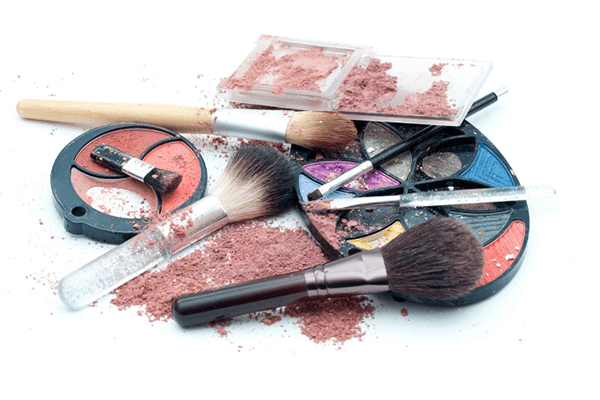The lockdown move towards online ‘fast beauty’ may be waning, with research suggesting that a quarter of money spent in lockdown on online makeup and beauty purchases was wasted in the eyes of consumers.
According to research commissioned by Bobby & Co of Bournemouth, last year shoppers spent an estimated £3.3bn on lockdown beauty essentials, ordered online during the pandemic. Of this, an estimated £860m – quarter of the total spend – was spent on beauty products that the recipient found to be totally unsuitable, thrown in a drawer and never to be used again.
With a worldwide focus on sustainability and a call to move away from fast fashion, this Christmas shopper appear more circumspect and are saying that they plan to make their purchases count, with 24% of those who have previously ordered cosmetics online – some estimated 6 million people – vowing to only buy their Christmas make-up looks in person and a further 30% committing to only buying online if they know the product well.
Additionally, another 27% of shoppers who have previously ordered cosmetics online would consider purchasing a new product online but only if they were offered a proper online matching consultation.
Over lockdown, it appears that most consumers had at least one case of buyer’s remorse when it came to beauty: 58% of respondents who purchased cosmetics online bought makeup they never used, and a further 78% would spend less money buying makeup online in the future, even if there were a future lockdown.
Whilst online beauty purchases are no doubt here to stay, it seems many consumers are being drawn back to the high street as we approach the festive season, where they can physically test the make-up to ensure that they can get the best value for money. The results are perhaps not surprising – that the internet isn’t the answer to every purchase.
Clearly the complacency of the High St has made it easier for online retailers to grow, and now in-person retail must change to survive. Beauty halls themselves have found it necessary to make changes since pandemic, as shops understand that they need to cater for environmentally conscientious people who want to ensure they are investing in a product that will not end up at the back of a drawer.
Ashley Nicholson, Director of Verve properties, owner of Bobby’s, says: “What we’re doing with Bobby’s is carefully curating a collection of shopping uses, activities and experiences where in-person shopping is either better than online or when shopping for that product is impossible on the internet.”
Nicholson continues: “You can’t judge a tone or texture of a lip gloss through a computer screen, you can’t enjoy a locally made ice cream or the ambiance of a sushi and champagne bar or wander through an art gallery installation online.”
Nicholson concludes: “The pandemic and environmental concerns has seen a shift which has changed us as a society, we are now less consumer driven, we want to do stuff more than buy stuff and providing these kinds of services is what town centres will morph into. There is a saturation point on online buying and we are beginning to see that in shopper habits. There is still a way to go and more pain to come for retailers, but change is coming and town centres, – which will be smaller but more full of life – will be better for it .”
Buying less and buying better
According to Zero Waste Week, 120 billion units of packaging is produced annually by the global cosmetics industry, the overwhelming majority of which is single-use plastic which is unable to be recycled and inevitably ends up in our landfills and oceans.
With only 9% of makeup packaging fully recyclable, and 70% of said packaging ending up in landfills unused, it seems that cosmetics consumers may be thinking of their carbon footprint as well as household clutter when it comes to their choice to buy less and buy better this Christmas.
The environmental impact of fast fashion has been widely publicised, with the welcome end result of consumers beginning to make a concerted effort to buy garments with the intention of keeping them.
Following COP26 in November, there appears to be a greater demand for consumers to take their carbon footprint into their own hands as we wake up to the hidden cost of the cosmetics industry – and how taking a more mindful approach to consumerism can help consumers play their part in making more sustainable choices.









